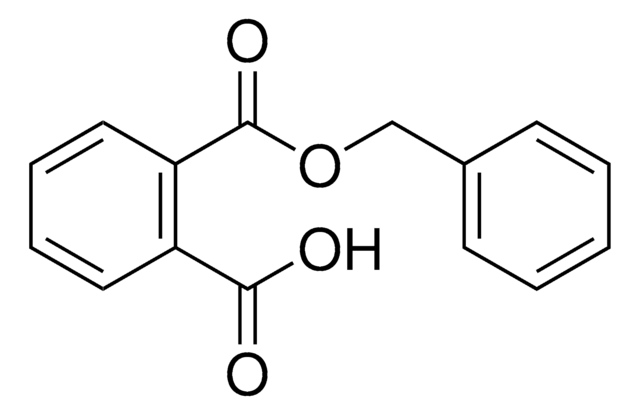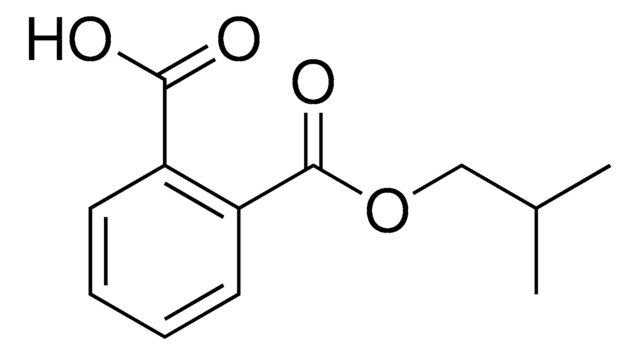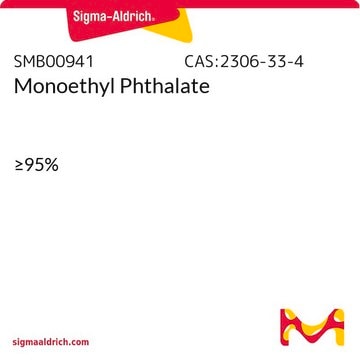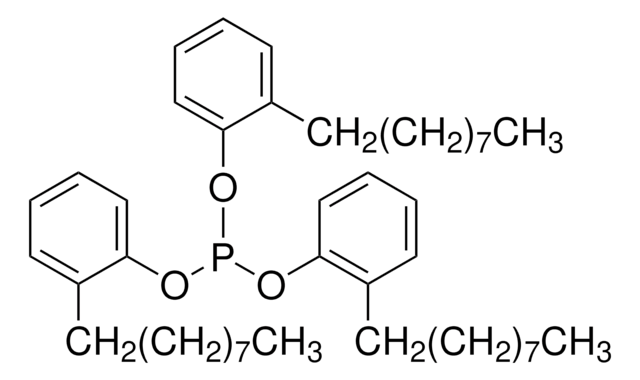75958
mono-Butyl phthalate
97.0-103.0% (T)
Synonym(s):
MBP, Phthalic acid butyl ester, mono-n-Butyl phthalate
About This Item
Recommended Products
Assay
97.0-103.0% (T)
form
crystals
SMILES string
CCCCOC(=O)c1ccccc1C(O)=O
InChI
1S/C12H14O4/c1-2-3-8-16-12(15)10-7-5-4-6-9(10)11(13)14/h4-7H,2-3,8H2,1H3,(H,13,14)
InChI key
YZBOVSFWWNVKRJ-UHFFFAOYSA-N
Looking for similar products? Visit Product Comparison Guide
Signal Word
Danger
Hazard Statements
Precautionary Statements
Hazard Classifications
Repr. 1B
Storage Class Code
6.1C - Combustible acute toxic Cat.3 / toxic compounds or compounds which causing chronic effects
WGK
WGK 3
Flash Point(F)
Not applicable
Flash Point(C)
Not applicable
Personal Protective Equipment
Certificates of Analysis (COA)
Search for Certificates of Analysis (COA) by entering the products Lot/Batch Number. Lot and Batch Numbers can be found on a product’s label following the words ‘Lot’ or ‘Batch’.
Already Own This Product?
Find documentation for the products that you have recently purchased in the Document Library.
Customers Also Viewed
Our team of scientists has experience in all areas of research including Life Science, Material Science, Chemical Synthesis, Chromatography, Analytical and many others.
Contact Technical Service








![mono-[(2RS)-2-Ethyl-5-oxohexyl] phthalate analytical standard](/deepweb/assets/sigmaaldrich/product/structures/380/975/47f8fcbc-594c-4f9c-84df-43685552cd06/640/47f8fcbc-594c-4f9c-84df-43685552cd06.png)







